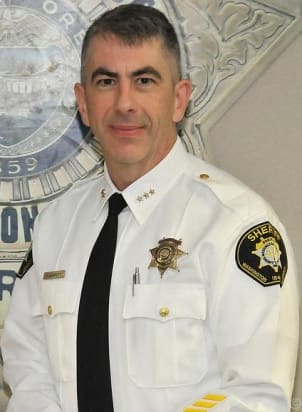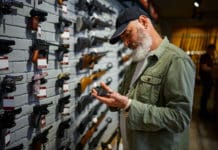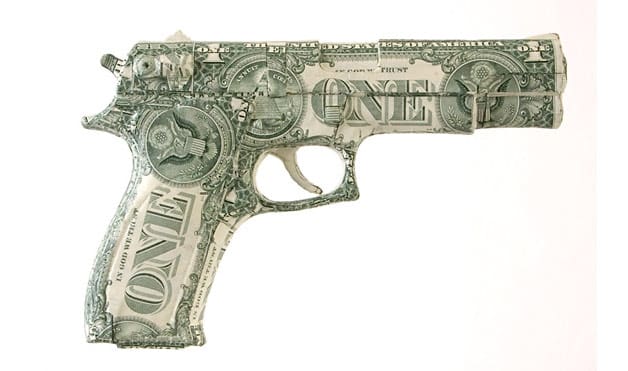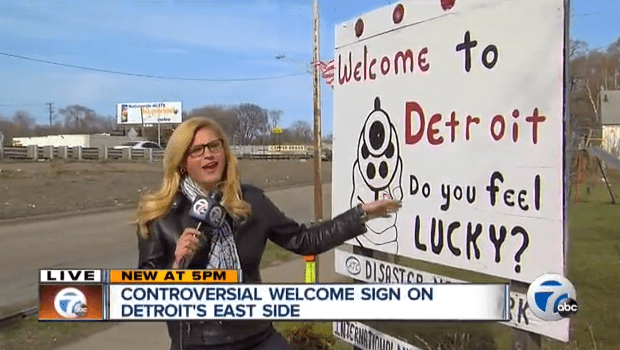TTAG Commentator Phydeaux wrote to Washington Country Sheriff Pat Garrett:
Dear Sheriff Garrett,
I whole heartily agree with the message in the scenario you presented in your recent newsletter. It is always best to avoid a potential confrontation, provided one’s loved ones and self can remain safe. And I appreciate the delicate position the Sheriff’s office is in regards to providing advice, legal or otherwise. And really, it’s not LEOs responsibility to guide and educate CHL holders – it’s not your role and there’s no legal framework to facilitate that role and to keep it from impacting your law enforcement role, which is paramount. However I do think there is a role for law enforcement in creating a proper environment for safe and effective CHL holder’s self defense . . .
It seems that there are two sides to these issues, the CHL’s personal responsibilities (and what the Sheriff’s department can do to help see that they’re discharged effectively) and issues around the perspectives and expectations of LEOs and CHL holders when they come in contact.
I’m sure like many others, as a CHL holder I feel a tremendous (and humbling) responsibility when I step out my door armed. While accepting responsibility for my own defense, I know I must do more than simply carry a gun. Learning about the proper equipment, getting a lawyer, training and practice are critical. It seems to me that it would be valuable to the county’s CHL holders (and certainly of interest) to learn about what the Sheriff’s department does to train their deputies.
What equipment is used and why? What ammunition? What kind of training exercises are conducted? None of this would constitute advice, simply examples of how you have chosen to deal with the issues and responsibilities around armed self defense or use of force for you and your staff.
Regarding expectations when LEOs and CHL holders come in contact, as a CHL holder I would like to know that all LEOs – not just deputies – are knowledgable about current laws and tolerant of the rights embodied in the 2nd amendment and state law.
I know for many years when a deputy came in contact with an armed citizen it was reasonable to assume they were a criminal or engaged in criminal activity. But with the broad adoption – and clear success – of concealed carry across most of the US (e.g., no “blood in the streets” and the low incidence of criminal activity among CHL holders in general), that is no longer a valid assumption.
I would guess that in most LEOs interactions with citizens these days the vast majority of these armed individuals are law abiding citizens. Ensuring that this is the expectation across the force strikes me as a training and leadership challenge for some law enforcement organizations.
Good policing requires some component of “customer service.” From the CHL holder’s perspective we would like to know what you and your deputies expectations are (as they have been set by leadership above) when coming into contact with legally armed citizens. For example, while we’re not legally required to disclose whether we are carrying during a traffic stop, if it would be considered a courtesy by the deputy, I know I would be glad to make that disclosure.
If this is the case, how should the disclosure be made? (Probably not, “oh hey, I’ve got a gun.”)
Likewise, during a contact with a deputy outside of a traffic stop, I know I’m only required to provide my name – no drivers license (since I’m not driving or in a car), and not whether I’m carrying. Is that a consistent expectation across your force? I would hope so – although there’s nothing to keep them from asking or making those requests, just don’t get upset if someone choses to exercise their rights. I also know that should I be detained, the deputy can conduct a Terry search.
How would this be communicated by the deputy? What is the best response and procedure to follow to ensure both my own and the deputies safety? If they want to hold my weapon during the detention, what’s the procedure? Do they remove the weapon or should I grab it and hand it to them – and if so how?
Another obvious, and probably more problematic area to address is what should happen after a defensive handgun use. Certainly one should notify local authorities ASAP. Based on my understanding at this point, I’d re-holster and conceal my weapon until authorities arrived. I don’t want to leave the weapon out, e.g., on the ground, where someone else could take or use it against me or someone else. Nor would I want to unload it and be defenseless. Nor do I want to be holding a gun when your deputies arrive. How are your deputies trained to act in a situation like that?
What’s the best and safest way for me to disclose I’m a CHL holder and be disarmed? I certainly don’t want to make a mistake and get shot. I think CHL holders would like their expectations set here as to what you and your deputies expect of us, and the procedures that both parties can follow to ensure a safe outcome.
There’s no need to get into how an investigation might proceed, the questions asked or what CHL holder’s rights are – that’s outside the Sheriff’s purview and gets into legal advice. We’ve got lawyers (or at least we should) to answer those kinds of questions. It’s the procedural end of things that is an unknown for us.
I know this is a difficult area, and I hope the ideas above are of some use.
Best regards,
NAME WITHHELD
I really hadn’t considered these specific issues until I wrote this last email, but they seem pretty basic. In an ideal world, some organization (GOA, NRA, etc.) would work with law enforcement and create a set of best practices for both LEOs and CHL holders. But as far as I’m aware, such best practices don’t yet exist. Given the broad adoption of legal concealed carry, I think we’re behind the curve in this regard and past do for having these issues addressed.





Wonder if he’ll skirt around an actual answer.
That is an excellent opportunity for lawful dialogue amongst LEOs and CHL / CCW’s. I hope the Sheriff’s office takes it at face value, and provides at least some specific guidelines for CCW holders and LEOs alike. Your request for information is well written, and underscores the fact that you, and other CCW holders, are thoughtful concerning the safety of yourselves, the public, and LEOs.
Your answer will hopefully be written with similar consideration. I’m looking forward to a follow up.
It’s a great letter, full of questions that need answers. But law enforcement is a field of low pay and high turnover, and budget cuts are the current priority. Most LEOs will never encounter a citizen carrying, and even if they do, the consequences of a mistake will tend to have far graver consequences for the citizen than for the officer. I fear the policy you desire will arise from a Supreme Court decision following a tragedy.
That’s a damn good letter and raises dozens of question about LEO training and mindset.
My guess is that LEOs in most jurisdictions receive NO training that would teach them to interface successfully with CCW holders.
Excellent set of questions. With one little problem. I am not about to give my gun to anyone. Say that again ANYONE.
I do not expect to be disarmed. The more the gun is handled, the better a chance for a negligent
discharge. And contrary to some beliefs, cops don’t know much about most guns. Better to stay quiet about
carrying. It is not their business and it certainly is not their business to steal or confiscate personal property no matter their reasoning. I use
this pertaining to a traffic stop or other minor occurrence and not where reasonable suspicion or reasonable cause can be
articulated. Once I leave my car, the car door is shut, they no longer can search it without a warrant. Not legally.
We are citizens and law abiding.
Some states/jurisdictions require that a CHL-holder inform the LEO that he is armed. Many places have police policy which provides that the LEO disarm the citizen while speaking with them.
My take is that I am sovereign, not the LEO: If I am not being detained for a suspected felony, I should have no duty to inform him “for his safety” whether I am carrying, and nor should he have any authority to disarm me just so we can “talk”. Legally, I don’t see where a “police policy”, not authorized be legislature, should be unchallenged at least in court. Police agencies who make policy which affects their interaction with citizens and outside of law need to be slapped for assuming power which was not authorized to them by “We the People”.
The state of Texas addressed this problem when we rolled out our CHL program in the mid 90s. The state police academy developed the curriculum for the CHL course, and developed a parallel training module for all Texas law enforcement. The idea was to teach cops and armed citizens a common script for interaction during traffic stops and other low intensity situations. The training clarified what actions were legal under the state’s CHL law and existing penal code.
In my opinion, the rules in place in Texas do a reasonable job of balancing civil liberties and the safety concerns of officers, although some gun rights absolutists don’t like them. If you are carrying in Texas, and a cop asks for ID, you have to show your CHL and tell them you are carrying. The cop has the option to temporarily disarm you and then return the firearm to you when he/she says you are free to go.
I’ve been through that process in person and have dozens and dozens of reports from my CHL students about their own experiences. The most common things that occur are: 1) cop decides you are cooperative and not a threat, lets you stay in the car and takes no action regarding your gun 2) if it’s possible to separate you from your gun without handling the gun, does so. For example – if the gun is in the car and not on your hip, have you get out of the car and stand behind it, or if the gun is in fanny pack or other off-body carry, take the bag and place it on the hood. During a traffic stop in Louisiana, I was carrying in a holster, and was asked to step out of the car and stand behind the vehicle, so the officer could see me as he ran the usual checks on my ID, but during that time I was still armed.
At least in the data I have, it’s extremely rare that a Texas cop will actually put his/her hands on your pistol. A large component of how those interactions go has to do with the attitude of the permit holder. Smile, be polite, treat the officer the way you would want to be treated should your roles be reversed and most of the time, at least in Texas, the worst outcome will be a ticket. FWIW, my own experiences and reports from students indicate that CHL holders that follow the script, smile and are polite often end up with warnings instead of tickets.
*past due
I wonder if this Sherrif Garrett is a descendant of THE Pat Garrett?
I just hand my DL & CC license at the same time, I’m not required to in Wis. I have been treated with respect & an almost “your one of us attitude” Randy
Comments are closed.